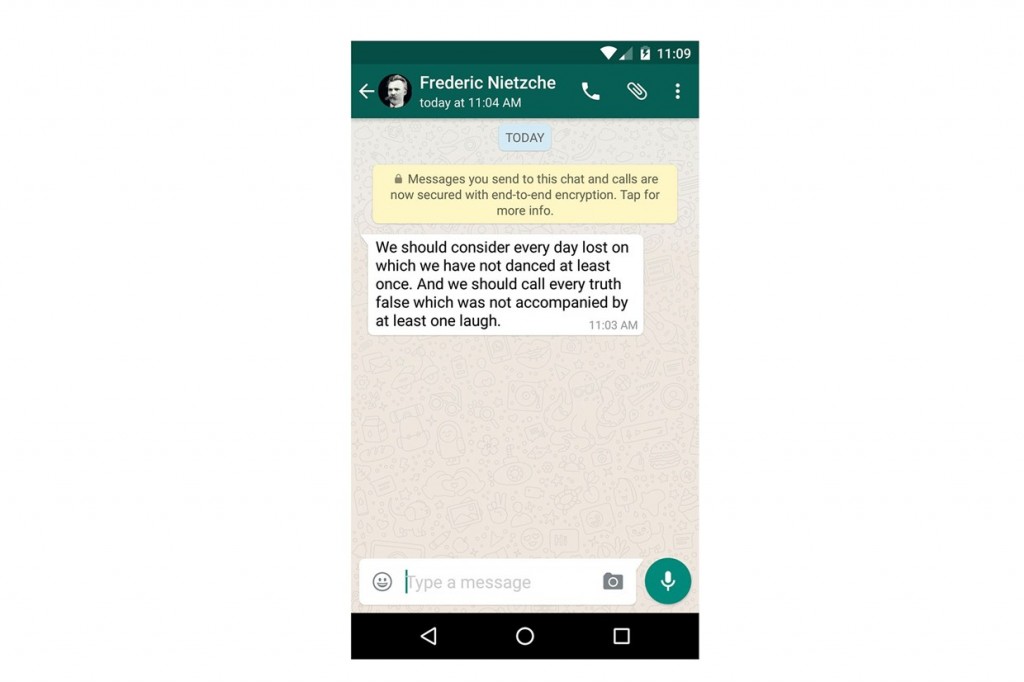WhatsApp activates end-to-end encryption method for one billion users
WhatsApp has turned on end-to-end encryption across all of its apps, the company has announced.
The Facebook-owned app, which has more than one billion monthly active users, turned on the Signal Protocol, developed by Open Whisper Systems, by default. The open-source private messaging system, which has been supported by Edward Snowden, will protect group chats, attachments, voice notes, and voice calls that are made across WhatsApp on Android, iPhone, Windows devices and some Nokia and BlackBerry models.
The encryption method lets users see content that has been sent but does not allow service providers, such as WhatsApp, to access the content of the messages.
“Starting today, users will see a notice in their conversation screen as their individual and group chats become end to end encrypted,” Open Whisper Systems said in a blog post. “Additionally, the encryption status of any chat is visible under that chat’s preferences screen.”
WhatApp’s adoption of end-to-end encryption follows Apple’s debate with the FBI over the unlocking of a terrorist’s iPhone. During the dispute Jan Koum, WhatsApps’ co-founder, said that he supported Apple’s position and admired its “efforts to protect user data”. In March it was revealed that WhatsApp had been targeted by court orders asking to access information it holds.
The Whisper blog explained that there would still be unencrypted text on the WhatsApp network until everyone updated to the latest version of the software. When someone is using the end-to-end encrypted network plain text will not be sent to them, even if they downgrade their software.

Whisper Systems
“Eventually all the pre-e2e capable clients will expire, at which point new versions of the software will no longer transmit or accept plaintext messages at all,” Whisper said.
Users will also be able to verify their encrypted messages by scanning a QR code or reading a code aloud. This is to ensure messages are being sent and received by the correct users. The latest move means that WhatsApp employees won’t be able to access messages, even if they are ordered to do so by the courts.
“Eventually all the pre-e2e capable clients will expire, at which point new versions of the software will no longer transmit or accept plaintext messages at all,” Whisper said.
Users will also be able to verify their encrypted messages by scanning a QR code or reading a code aloud. This is to ensure messages are being sent and received by the correct users. The latest move means that WhatsApp employees won’t be able to access messages, even if they are ordered to do so by the courts.

